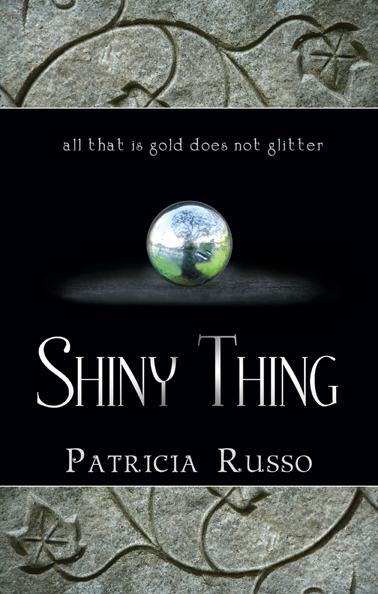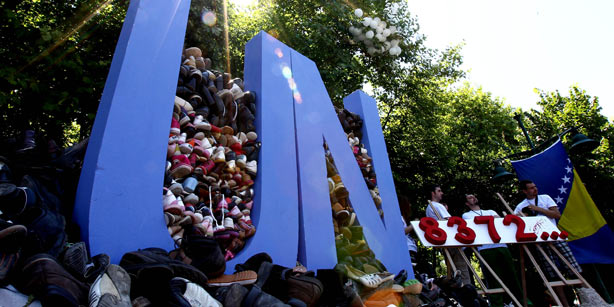Le Meridien Announces Turkish Artists :mentalKLINIK As the Newest Members of the LM100 Family
- Published in Culture & Art
- Written by Admin TOA

 Patricia Russo had her first professional short story, “True Love”, published in 1987 in the anthology Women of Darkness: Original Horror and Dark Fantasy by Contemporary Women Writers, edited by Kathryn Ptacek. Since then her work has appeared in Lone Star Stories, Electric Velocipede, Abyss and Apex, Talebones, Tales of the Unanticipated, Not One of Us, in the anthologies Corpse Blossoms and Zencore, and in many other fine publications. She is that rarest of authors: she has no website, no blog, nothing on the internet to indicate that she even exists — except for a trail of fiction that reveals the prolific and generous writer behind the name. This is her first collection of short stories.
Patricia Russo had her first professional short story, “True Love”, published in 1987 in the anthology Women of Darkness: Original Horror and Dark Fantasy by Contemporary Women Writers, edited by Kathryn Ptacek. Since then her work has appeared in Lone Star Stories, Electric Velocipede, Abyss and Apex, Talebones, Tales of the Unanticipated, Not One of Us, in the anthologies Corpse Blossoms and Zencore, and in many other fine publications. She is that rarest of authors: she has no website, no blog, nothing on the internet to indicate that she even exists — except for a trail of fiction that reveals the prolific and generous writer behind the name. This is her first collection of short stories. A four-day Turkish festival, the Anatolian Cultures and Food Festival 2011, organized by the Pacifica Institute, opened its doors to visitors in southern California on Thursday and continued attracting masses at the Orange County Fairgrounds in Costa Mesa on its last day (Sunday) this year, as was the case when the event was organized for the first time in 2009.
A four-day Turkish festival, the Anatolian Cultures and Food Festival 2011, organized by the Pacifica Institute, opened its doors to visitors in southern California on Thursday and continued attracting masses at the Orange County Fairgrounds in Costa Mesa on its last day (Sunday) this year, as was the case when the event was organized for the first time in 2009. Tyler Junior College, (Tyler,Texas), professor Dr. Manoucher Khosrowshahi is taking reservations for “Turkey: Biblical and Archeological Tour of Asia Minor”, his annual 10-day travel-study tour planned for March 9-18, 2012. In 2008, Khosrowshahi was named Texas Professor of the Year by the Carnegie Foundation for the Advancement of Teaching and the Council for Advancement and Support of Education. He is also a Fulbright scholar.
Tyler Junior College, (Tyler,Texas), professor Dr. Manoucher Khosrowshahi is taking reservations for “Turkey: Biblical and Archeological Tour of Asia Minor”, his annual 10-day travel-study tour planned for March 9-18, 2012. In 2008, Khosrowshahi was named Texas Professor of the Year by the Carnegie Foundation for the Advancement of Teaching and the Council for Advancement and Support of Education. He is also a Fulbright scholar.  NEW YORK—What's left to do once you have conquered the internet in Turkey? How about starting an art gallery in New York? That's exactly what Emre Kurteppeli, the art collector and founder of Turkish internet hub Mynet, did after finding two partners — New York lawyer Mel Dogan and Turkish businessman Erkut Soyak — who were equally interested in supporting artists from emerging markets. They found a 9,000-square-foot piece of real estate on fashionable 24th Street in Chelsea, hired some big names in the industry, courted a splashy guest curator, and threw one of the most crowded art openings of the month at their new space, C24.
NEW YORK—What's left to do once you have conquered the internet in Turkey? How about starting an art gallery in New York? That's exactly what Emre Kurteppeli, the art collector and founder of Turkish internet hub Mynet, did after finding two partners — New York lawyer Mel Dogan and Turkish businessman Erkut Soyak — who were equally interested in supporting artists from emerging markets. They found a 9,000-square-foot piece of real estate on fashionable 24th Street in Chelsea, hired some big names in the industry, courted a splashy guest curator, and threw one of the most crowded art openings of the month at their new space, C24.  Perhaps the biggest difference between the NFL and NBA lockouts is that the guys who play hoop have more ways to make money. For NFL players, the best alternative market is the Canadian Football League, which doesn't pay big. For NBA talent, there's a whole world of opportunity out there in Europe, Asia and the Middle East.
Perhaps the biggest difference between the NFL and NBA lockouts is that the guys who play hoop have more ways to make money. For NFL players, the best alternative market is the Canadian Football League, which doesn't pay big. For NBA talent, there's a whole world of opportunity out there in Europe, Asia and the Middle East. The Srebrenica genocide, known as the worst massacre in Europe since World War II, was condemned in İstanbul's Taksim Square on Saturday by 8,372 pairs of shoes in front of a monument consist of two steel-framed pillars in the form of the letters U and N (United Nations).
The Srebrenica genocide, known as the worst massacre in Europe since World War II, was condemned in İstanbul's Taksim Square on Saturday by 8,372 pairs of shoes in front of a monument consist of two steel-framed pillars in the form of the letters U and N (United Nations). Trips to Turkey for Americans organized by the Turquoise Council of Americans and Eurasians and the Atlas Foundation are more than just another vacation.
Trips to Turkey for Americans organized by the Turquoise Council of Americans and Eurasians and the Atlas Foundation are more than just another vacation.

The Turkish choreographer Korhan Basaran isn’t interested in beating around the bush: the title of his evening-length show last Tuesday night at the Ailey Citigroup Theater was “I am Korhan, this is my dance!” He began “On Life,” the final section, which was inspired by New York, chatting with audience members while wearing an “I ♥ NY” T-shirt.
There’s something charming about this, even (or especially) if it might cause a grizzled New Yorker to raise an eyebrow or two: Mr. Basaran ended that section alone onstage, dripping with sweat, his intense mien slowly softening into an earnest smile. You want to root for this immigrant artist, whose breathless program biography describes him as “based in the mighty New York”; “On Life,” with its buckling, collapsing phrases set to Philip Glass, pushes the dancers to drenched exhaustion in a clear emulation of chaotic, at times alienating, urban life. (The dancer Jenna Otter is particularly effective here.)

 When the Utah Jazz drafted Enes Kanter with the third pick in the 2011 NBA Draft it meant that for the first time in NBA history two Turkish players would play on the same team. Mehmet Okur who has been a member of the Utah Jazz for seven seasons, and the only Turkish player ever to win a NBA Championship and be an All-Star talked about the selection and other topics.
When the Utah Jazz drafted Enes Kanter with the third pick in the 2011 NBA Draft it meant that for the first time in NBA history two Turkish players would play on the same team. Mehmet Okur who has been a member of the Utah Jazz for seven seasons, and the only Turkish player ever to win a NBA Championship and be an All-Star talked about the selection and other topics.